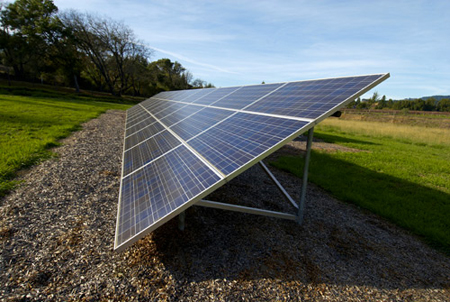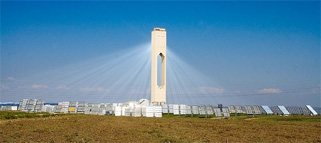Solar thermal energy for sanitary hot water

What is it?
It is a kind of energy that uses solar radiation to generate hot water. Solar energy heats up the fluid circulating along sun-oriented collectors. Later on, this heat is exchanged with the water in the accumulator.
This hot water can be used for:
- Sanitary hot water (SHW) for houses, schools, hospitals, etc.
- Swimming-pool heating
- Radiant floor heating
In cities, solar collectors can be found on roofs, balconies, façades, sunny courtyards, etc., following architectural criteria which enable their integration in the buildings and which reduce their visual impact. They have to be south-oriented with an inclination that will maximise the collected energy.
Advantages
- Solar energy is free and inexhaustible
- Systems are easy to install and maintain
- It does not pollute
- Investments are redeemable in 5-8 years
Solar photovoltaic energy
What is it?
It is the energy produced by direct transformation of solar rays into electricity. Photovoltaic panels are made by mono or poly-crystalline silicon cells. As the sun falls on these plates, a potential difference takes place, yielding a continuous electric flow.
To exploit this energy, electric power is to be transformed into alternate current by means of inverters. It happens to be very useful for the electrification of small rural areas or off-grid houses, for isolated signalling equipment, for charging of batteries, etc. There are also photovoltaic installations that feed their production straight into the grid.
They are ideally placed in very sunny areas, without shadows, South-oriented or with sun-trackers.
Advantages
The main advantage is that solar energy is free and inexhaustible, and it is not polluting either. However, the redemption period for the installation is very long.

Solar thermal electric energy

What is it?
It is the energy produced when heating up a fluid with solar radiation. This occurs by concentrating solar rays on a same point with a system of oriented mirrors. The high-temperature fluid enables the production of steam, used to move the turbine-alternator, in charge of generating electric power.
Advantages.
- Solar energy is free and inexhaustible
- The system can generate high voltages.
- It is not polluting